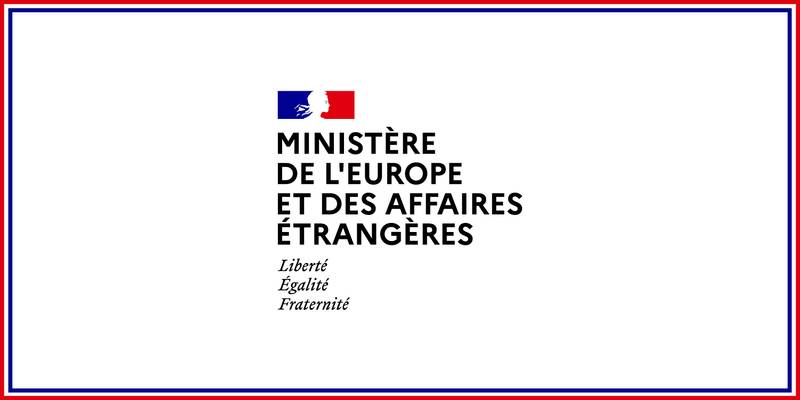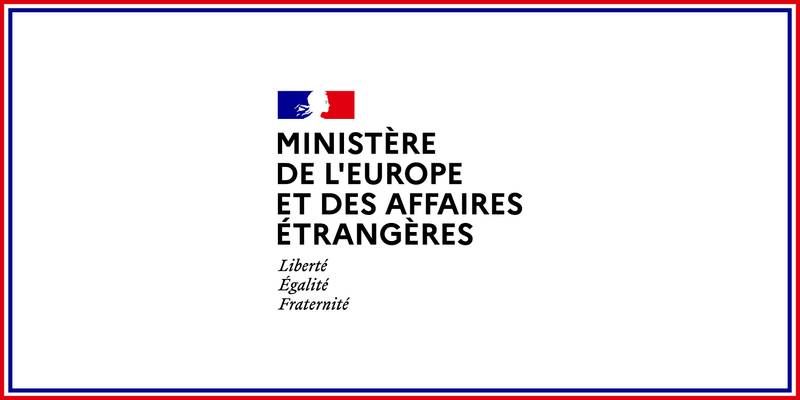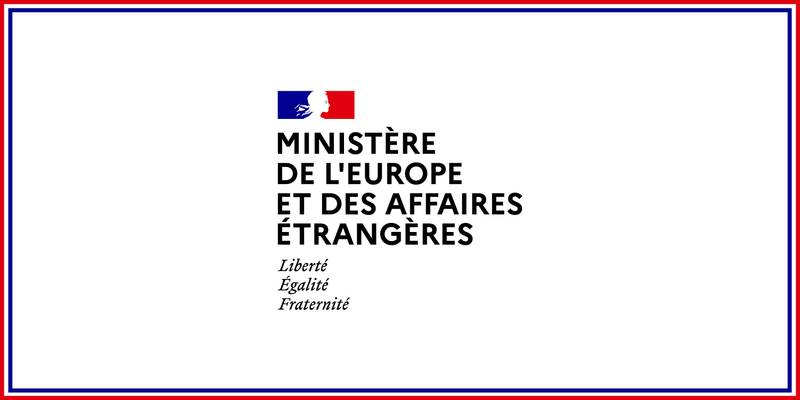You are visiting Southern Africa, I believe, where several elections are imminent. How does Paris assess the prospects for real democracy in these elections and more generally in Africa
Democracy is a universal good to which France, Europe and Africa are equally attached. Citizens must be able to choose their future and, for this, there are principles to follow, which apply to all countries in the world: a pluralist electoral debate in accordance with the law, a free and fair vote and respect for the choice of voters. Africans and Europeans alike have the same democratic demands.
During my trip, I will have the opportunity to exchange with philosopher Pr Achille Mbembe, who heads the Innovation Foundation for Democracy, supported by France and launched last October, with its headquarters located in South Africa. The Foundation supports research and citizen initiatives around democracy.
How also does Paris assess the African peace mission to Ukraine and Russia in which President Ramaphosa is also participating? Does it stand a chance of success? Does France see it as being impartial? Is the role of Jean-Yves Ollivier and the Brazzaville Foundation positive?
I had the opportunity to say this to my counterpart and friend Dr Naledi Pandor who was in Paris last month: any effort in favour of a just and lasting peace, which respects the territorial integrity and sovereignty of Ukraine, is welcome.
You may wonder why we attach so much importance to the sovereignty and territorial integrity of Ukraine: it is because there is an aggressor country, Russia, and an attacked State, Ukraine, which exercises its right to self-defence under the United Nations Charter.
A peace that would not be based on international law and that would simply recognise a state of affairs on the ground would not be sustainable. It would mean accepting the right of the strongest and it would be an illusion, because new conflicts would result from it. Allowing one aggression to be rewarded would risk opening the way to other aggressions, there or elsewhere.
We must be aware of this, because we are all concerned. As to your question about the individual contributors to this initiative, what makes this initiative important to us is that it is led by South Africa together with other African partners.
What is France’s current view of South Africa’s posture on the Russia-Ukraine war? This has been criticised by many Western capitals and US Congressional leaders are now asking Biden to move the Agoa forum from South Africa as a result. Do you see any signs of South Africa correcting its course on Russia-Ukraine?
South Africa is a trusted partner for France. The President of the French Republic Emmanuel Macron talks very regularly with President Cyril Ramaphosa. For my part, I work closely with Pr Naledi Pandor on all major international challenges. This includes of course the Russian aggression in Ukraine. On this subject, we exchange positions and see how our countries can provide solutions.
We also share the same commitment to the defense of multilateralism and international law, which are important issues in the war in Ukraine, as well as to the reform of global governance, where we support a strengthening of the role of African countries. With my counterpart, we will also discuss other cooperation topics that will be at the heart of my visit, such as climate change, global health and youth, sport and education links between our two countries.
President Ramaphosa’s visit to Paris in a few days for the Summit for a New Global Financial Pact is testimony to this. We act together for the common good.
France is one of the international partners of the Just Energy Transition Partnership. Are you happy with Pretoria’s progress in implementing the JETP? Is it moving fast enough? Has Ramaphosa’s appointment of an Electricity Minister helped? What is the current state of France’s contribution?
Climate change is a source of major concern for citizens of our two countries, and a priority for our foreign policy. We are happy to be partners of the JET-P [Just Energy Transition Partnership], in which we are going to invest 1 billion euros.
I insist on the adjective “just” to describe the energy transition. An essential point for us is indeed that populations and territories economically dependent on coal production can diversify their activities. This transition can only succeed if it is socially just.
Incidentally, our efforts go well beyond that. On Thursday, we are going to host a Summit in Paris for a New Global Financial Pact, to better meet the financing needs of the countries which need it most, in particular for their ecological transition. No country should have to choose between reducing poverty and protecting the planet.
France has suffered some setbacks in Africa, in Mali, Burkina Faso, Central African Republic etc. How is it readjusting its Africa policy as a result
President Macron has initiated a profound reform of our relations with countries on the African continent. This started with his speech to students in Ouagadougou in 2017, and was further expanded during the Montpellier summit in 2021, which was attended by many actors from civil society, artists, entrepreneurs, and intellectuals, and in particular many young South Africans.
We want to build a new relationship, based on partnership and responsibility, in which we deal with our common challenges together, while also assuming our national interests. We are strengthening our cooperation in innovation, culture, entrepreneurship, gender equality and the fight against climate change, where we have so much to do together. We can rely on the very intense human ties we have with many African countries.
As for security, which is naturally part of our common concerns, we have had to intervene strongly in the fight against terrorism and in support of initiatives on regional crises. We only carry out these actions at the request of the governments of the countries concerned, within an international framework in accordance with United Nations resolutions, and in cooperation with regional organisations, in particular the African Union. We are proud to be a reliable partner of African countries in this field and to see an increased commitment from all our partners in the European Union. Contrary to what one may sometimes read, I assure you that our relations with the vast majority of the fifty-four African countries are good.
Useful links
Originally published at https://www.diplomatie.gouv.fr/en/country-files/south-africa/news/article/south-africa-interview-of-catherine-colonna-for-the-daily-maverick-19-06-23




